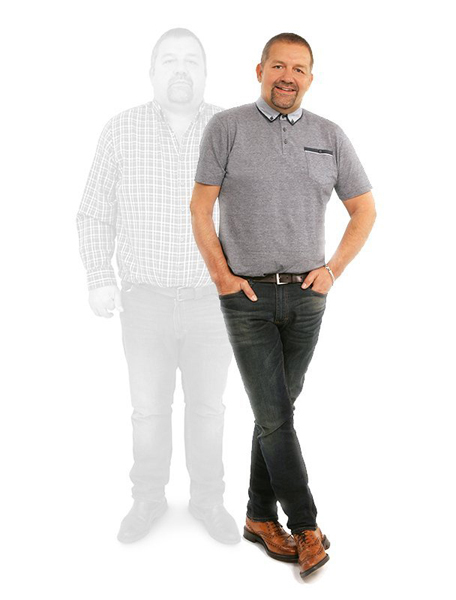Table of Contents
Setting Expectations for Your Weight Loss Path
Starting a weight loss journey can be daunting, as many people view the process as a mammoth feat. But how long does it take to lose weight? While there’s no one-size-fits-all answer, understanding typical weight loss timelines helps in setting achievable goals and staying committed.
This article sheds light on what to expect during your weight loss journey, including factors that impact how quickly you see results. Instead of extreme yo-yo dieting that focuses on quick results, structured programs can provide a more sustainable, long-lasting shift.
Keep reading to find out how, with the right strategy, you can achieve your desired weight while enjoying the process.
How Long Does It Take to Lose Weight? The Process
When you start a weight loss journey, understanding the physiology behind it is key. The body undergoes significant changes during this process, primarily involving fat loss and muscle maintenance.
Fat Loss
Fat loss occurs when you consume fewer calories than your body burns in a day. This calorie deficit forces the body to use stored fat for energy, leading to weight reduction. The process of how long it takes to start losing weight depends largely on the size of the calorie deficit. A moderate and consistent deficit typically results in steady and sustainable fat loss.
Muscle Maintenance
While losing fat is the main goal for many, maintaining muscle mass is equally important. Muscle is metabolically active and helps sustain a higher basal metabolic rate, meaning it helps your body burn more calories even at rest. A common concern during weight loss, especially rapid weight loss, is muscle loss, which can slow down your metabolism and make further weight loss more challenging.
Realistic Expectations for Weight Loss
Setting realistic goals for weight loss is essential for both short-term success and long-term maintenance. Understanding what’s achievable can help keep you motivated and prevent frustration during your journey.
Healthy Weight Loss Targets
How much weight is good to lose in a week? Health experts commonly recommend aiming to lose about 0.5 to 1 kg (1 to 2 pounds) per week. Losing weight at this pace is considered safe and sustainable, reducing the risk of adverse effects associated with rapid weight loss. Following healthy weight loss targets means you are more likely to keep the weight off long-term, as it allows you to gradually adapt to lifestyle changes rather than feeling overwhelmed by drastic restrictions.
The Risks of Rapid Weight Loss
While the idea of losing weight quickly may seem appealing, it often involves extreme dietary measures that are difficult to maintain and can be harmful to your health. The dangers of rapid weight loss include muscle loss, nutritional deficiencies, and a slowed metabolism. It also increases the likelihood of experiencing the yo-yo effect, where you regain the weight soon after losing it, as the body reacts to what it perceives as a severe energy deficit by lowering its metabolic rate.
Setting Achievable Weight Loss Goals
When planning your weight loss journey, consider factors like your current weight, dietary habits, physical activity levels, and overall health. Setting a goal to lose one kg a week might be realistic for some but may not be suitable for everyone.
Also Read: What Are The Stages of Weight Loss
Factors Influencing How Long It Will Take to Lose Weight:
1. Age
How long does it take to start losing weight? Metabolic rate generally slows down as you age. Older adults might find it slightly more challenging to lose weight at the same rate as younger individuals due to this natural decrease in metabolism. However, with tailored nutritional plans and appropriate exercise, effective weight loss can still be achieved regardless of age.
2. Metabolism
Everyone’s body processes food and burns calories at different rates, which is largely influenced by genetics but can be modified through lifestyle changes and medical interventions. Those with a naturally higher metabolic rate might lose weight quicker, while others with slower metabolism may need additional support and adjustments to their weight loss plans to see the same results.
3. Starting Weight
Generally, more overweight individuals will see more rapid weight loss initially. The larger your body, the more calories it burns doing the same amount of activity as someone smaller. This means initial progress can be quicker, but as you lose weight, your calorie needs decrease, and weight loss may slow down correspondingly.
4. Diet and Nutrition
The composition of your diet plays a crucial role in how effectively you can lose weight. Balanced diets rich in whole foods like lean proteins, vegetables, and healthy fats can help maintain a steady metabolism and reduce calorie intake without sacrificing essential nutrients.
5. Physical Activity Level
Regular physical activity burns calories and helps build muscle, which in turn can boost your metabolic rate. The type, duration, and intensity of exercise can significantly influence the rate of weight loss. Structured programs often incorporate specific types of activities that help with fat loss while preserving muscle mass.
6. Lifestyle Factors
Sleep quality, stress levels, and daily routines also impact your weight loss efforts. Poor sleep and high stress can lead to hormonal imbalances that promote weight gain or hinder weight loss. Cultivating a healthy lifestyle that addresses these aspects is crucial for effective weight management.
7. Health Conditions and Medications
Certain medical conditions and medications can impact how long it can take to lose weight weight loss by altering metabolism or increasing appetite. Consulting with healthcare providers to manage these conditions can be a part of a successful weight loss strategy, addressing any underlying health issues.
Sustainable Weight Loss Strategies
Understanding how long it takes to lose weight is key to setting realistic goals and maintaining long-term health. Sustainable practices, supported by medically supervised programs, provide safe and efficient weight loss.
Alevere is a reliable, sustainable, predictable weight loss solution that keeps you motivated with a clear roadmap for your journey. Embracing a balanced approach will help you achieve your weight goals, maintaining them in the long run. Start your journey to a healthier life today.








